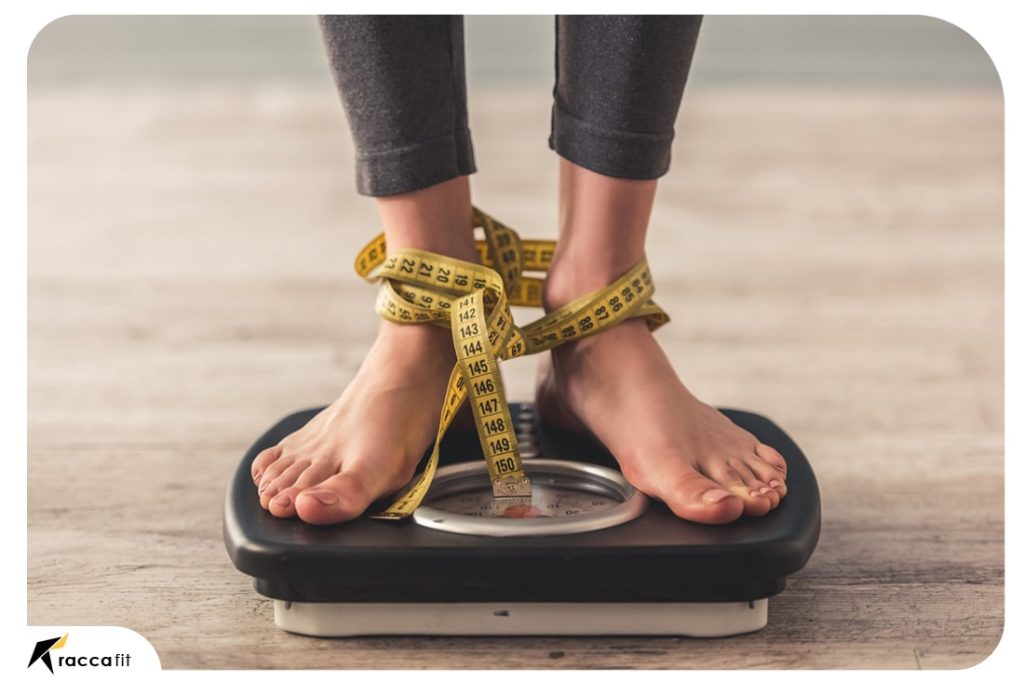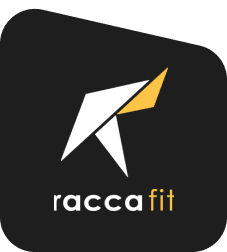Embarking on a weight loss journey can be a challenging endeavor at any stage of life. For women undergoing menopause, these challenges can be particularly pronounced due to the various physiological changes associated with this phase. Yet, there’s no need to despair. RaccaFit is here to guide you through the process. The solution may be simpler than you think – a balanced diet specifically tailored to combat the unique challenges menopause presents: “The Menopause Diet 5-Day Plan to Lose Weight“. With a combination of the right nutrients and regular exercise, achieving your weight loss goals during menopause can become a reality.
Understanding Menopause
Menopause is a natural part of aging that marks the end of a woman’s reproductive years. It typically happens between the ages of 45 and 55 and is associated with a variety of physiological changes, many of which can affect a woman’s weight and overall health.

Effects of Menopause on Weight
During menopause, the body undergoes significant hormonal changes, particularly a decrease in estrogen levels. This often leads to weight gain, especially around the abdomen, earning it the nickname “middle-age spread“. This phenomenon, combined with the natural slowdown of metabolism as we age, can make weight loss during menopause challenging. Additionally, the changes in hormones can affect how your body distributes fat, leading to more on the abdomen than hips and thighs. For a deeper understanding of this, you may want to check out our article on fat loss on the RaccaFit website.
Importance of Diet During Menopause
A balanced diet during menopause is crucial not just for weight loss, but also for managing menopausal symptoms and promoting overall health. It can help mitigate symptoms such as hot flashes, sleep disturbances, and mood swings, which are often reported during this phase. In addition, a nutrient-rich diet can reduce the risk of developing heart disease and osteoporosis, conditions that postmenopausal women are at higher risk for.
The Menopause Diet 5-Day Plan to Lose Weight: An Overview
So, what exactly does a menopause diet entail? At RaccaFit, we believe in holistic health approaches that are sustainable, efficient, and tailored to your unique needs.
How The Menopause Diet Works
The Menopause Diet 5-Day Plan to Lose Weight aims to balance your hormones naturally, assist in weight loss, and ensure you get the nutrients needed to handle menopausal symptoms. It emphasizes consuming low-glycemic foods that keep blood sugar levels steady, avoiding added sugars and processed foods, and incorporating more fiber, healthy fats, and lean proteins. It’s not about deprivation, but about creating a healthier lifestyle that you can maintain in the long run.
Learn more: 7-Day Low Glycemic Diet Plan: Fuel Your Body Right
Key Components of The Menopause Diet
Key components include a wide variety of fruits and vegetables for their fiber and essential nutrients, whole grains for sustained energy, lean proteins for muscle maintenance and growth, and a minimal intake of processed foods which are often high in unhealthy fats and sugars. We also encourage drinking plenty of water to aid digestion and keep your body hydrated, and incorporating vitamins for muscle gain and bone health into your diet. Omega-3 fatty acids, found in fish and flaxseeds, are also beneficial for heart health and mood stabilization.

A 5-Day Meal Plan for the Menopause Diet to Lose Weight
A sample 5-day plan is presented below. Remember, every individual’s body responds differently to dietary changes, so feel free to tweak this to suit your preferences and dietary needs. Always remember to listen to your body’s signals and adjust accordingly.
Day 1 to 5
In the five-day plan, you’ll start each morning with a nourishing breakfast. This could range from whole grain oats topped with a selection of fruits and nuts to an energizing green smoothie. Mid-morning, indulge in a healthy snack like hummus and vegetable sticks to keep those hunger pangs at bay.
Lunches will be a balance of protein, healthy fats, and carbohydrates, with recipes such as a grilled chicken salad with a variety of colorful vegetables. In the afternoon, another snack, perhaps a handful of nuts and seeds or one of RaccaFit’s recommended low-calorie smoothies, will keep your energy levels up.
Dinner is a time to unwind and enjoy a balanced, nutritious meal. Perhaps a fillet of grilled salmon, a powerhouse of omega-3 fatty acids, served with quinoa and steamed vegetables. The idea is to provide you with a well-rounded diet throughout the day, promoting satiety and keeping those unwanted cravings under control. Here is an example:
Day 1
Breakfast:
- Start your day with a high-protein meal such as scrambled eggs or a Greek yogurt parfait with berries and nuts.
- Enjoy a cup of green tea or herbal tea without added sugar.
Snack:
- Choose a handful of almonds or a small piece of fruit to keep your energy levels up.
Lunch:
- Opt for a colorful salad loaded with mixed greens, grilled chicken or fish, and a variety of vegetables.
- Dress the salad with a homemade vinaigrette made with olive oil, lemon juice, and herbs.
Snack:
- Savor a cup of low-fat cottage cheese or a small portion of hummus with carrot sticks.
Dinner:
- Prepare a delicious meal of baked salmon or tofu with roasted vegetables, such as broccoli, Brussels sprouts, and bell peppers.
- Serve with a side of quinoa or brown rice for added fiber.
Day 2
Breakfast:
- Enjoy a bowl of oatmeal topped with sliced bananas, a sprinkle of cinnamon, and a drizzle of honey or maple syrup.
- Have a cup of green tea or herbal tea.
Snack:
- Have a serving of Greek yogurt with a tablespoon of chia seeds and a handful of blueberries.
Lunch:
- Prepare a whole-grain wrap filled with lean turkey or chicken breast, avocado slices, spinach, and a dollop of hummus or mustard.
- Pair it with a side salad of mixed greens and cherry tomatoes.
Snack:
- Treat yourself to a small portion of dark chocolate or a homemade smoothie with spinach, berries, and almond milk.
Dinner:
- Make a stir-fry using lean beef, chicken, or tofu with a variety of colorful vegetables like bell peppers, broccoli, and snap peas.
- Cook in a small amount of olive oil or low-sodium soy sauce.
Day 3
Breakfast:
- Prepare a vegetable omelet using egg whites or a mix of eggs and egg whites.
- Add in your choice of vegetables like spinach, mushrooms, onions, and tomatoes.
- Enjoy a cup of green tea or herbal tea.
Snack:
- Have a handful of walnuts or a small serving of air-popped popcorn.
Lunch:
- Make a nutrient-packed salad with mixed greens, grilled shrimp or salmon, cherry tomatoes, cucumber slices, and a sprinkle of feta cheese.
- Dress it with a homemade lemon and olive oil dressing.
Snack:
- Enjoy a cup of herbal tea or a low-fat yogurt.
Dinner:
- Prepare a vegetarian chili loaded with kidney beans, black beans, tomatoes, onions, and spices.
- Serve it with a side of brown rice or a whole-grain bread roll.
Day 4
Breakfast
- Indulge in a smoothie made with almond milk, spinach, a scoop of protein powder, and your favorite berries.
- Have a cup of green tea or herbal tea.
Snack:
- Enjoy a small portion of guacamole with carrot sticks or whole-grain crackers.
Lunch:
- Make a wrap using whole-grain tortillas filled with grilled vegetables like zucchini, bell peppers, and onions.
- Add a spread of hummus or Greek yogurt for extra creaminess.
Snack:
- Have a cup of low-fat cottage cheese or a handful of pumpkin seeds.
Dinner:
- Prepare a baked chicken breast or tofu with a side of roasted sweet potatoes and steamed broccoli.
- Season the chicken or tofu with herbs and spices of your choice.
Day 5
Breakfast:
- Prepare a bowl of Greek yogurt topped with sliced almonds, a drizzle of honey, and a sprinkle of granola.
- Enjoy a cup of green tea or herbal tea.
Snack:
- Savor a handful of mixed berries or a small portion of low-fat cheese.
Lunch:
- Make a quinoa salad with a mix of vegetables like cherry tomatoes, cucumbers, red onions, and feta cheese.
- Dress it with a homemade vinaigrette made from olive oil, balsamic vinegar, and Dijon mustard.
Snack:
- Enjoy a cup of herbal tea or a small serving of roasted chickpeas.
Dinner:
- Prepare a grilled lean steak or a portobello mushroom with a side of steamed asparagus and a quinoa pilaf.
- Season the steak or mushroom with herbs and spices of your choice.
Remember to stay hydrated throughout the day by drinking plenty of water. This 5-day menopause diet plan focuses on balanced meals, incorporating lean proteins, whole grains, fruits, vegetables, and healthy fats. It aims to provide you with essential nutrients while promoting weight loss during menopause. However, it is always advisable to consult with a healthcare professional or a registered dietitian before making significant changes to your diet.

The Role of Exercise During Menopause
While the right diet can go a long way, pairing it with regular exercise can elevate your results, making your weight loss journey more effective and enjoyable.
- Benefits of Regular Exercise
Regular physical activity not only aids in weight loss but also improves your mood, helps you sleep better, and builds muscle mass. This is especially crucial during menopause when muscle mass tends to decrease due to hormonal changes. Engaging in regular physical activity can also improve bone density, cardiovascular health, and overall quality of life. For more on this, have a look at our guide on muscle and weight gain on the RaccaFit website.
- Recommended Exercises for Menopausal Women
Incorporating a variety of exercises into your routine can keep it engaging and fun. Cardiovascular activities like brisk walking or running can burn calories, improve heart health, and enhance your mood thanks to the release of endorphins, often known as ‘feel-good hormones‘. Strength training, on the other hand, is important for maintaining muscle mass and bone health, both crucial factors during and after menopause. Our RaccaFit website offers guidance for various cardio exercises that can help you embark on your fitness journey.
Understanding Your Body During Menopause
Understanding your body during menopause is essential. As you approach this stage, your estrogen and progesterone levels begin to fluctuate and eventually decline, leading to various changes. One such change is a slowdown in metabolism, which can make it more challenging to maintain your previous weight. Simultaneously, aging can lead to loss of muscle mass, a process known as sarcopenia, which further complicates weight management. It’s important to note that weight gain during menopause is not solely a cosmetic concern but may also increase the risk of conditions such as heart disease and type 2 diabetes. Thus, understanding these changes can help you tailor your diet and exercise strategies for effective weight management.

Dealing With Menopause-Related Stress and Anxiety
Menopause can often bring about feelings of stress and anxiety. The hormonal changes, coupled with physical symptoms like hot flashes and night sweats, can be overwhelming. This stress can sometimes lead to emotional eating, further complicating weight management efforts. Implementing stress-management strategies, such as deep-breathing exercises, yoga, and mindfulness meditation, can help. Regular physical activity can also be a potent stress reliever. A balanced diet rich in omega-3 fatty acids, known to support brain health and mood regulation, can also be beneficial.
How Sleep Affects Menopause and Weight
Sleep disturbances are common during menopause, with many women experiencing insomnia or disrupted sleep due to night sweats. Poor sleep quality has been linked to weight gain, changes in appetite, and decreased motivation to exercise. Furthermore, inadequate sleep can affect your mood and energy levels, making it more difficult to stick to healthy dietary choices. Improving your sleep hygiene, such as maintaining a regular sleep schedule and creating a calm, dark, and quiet sleep environment, can help improve sleep quality. Additionally, avoiding stimulants such as caffeine and alcohol close to bedtime can also promote better sleep.
Importance of Hydration During Menopause
Maintaining proper hydration is crucial during menopause. Adequate water intake aids in digestion, helps maintain healthy skin, lubricates joints, and can even aid in weight management. As you age, your sense of thirst may not be as acute, making it essential to consciously ensure you’re drinking enough water. To enhance your water intake, you could add flavor with slices of fruit, such as lemon or cucumber, or fresh herbs like mint. You can also get hydration from foods high in water content, such as cucumbers, lettuce, watermelon, and grapefruit.
How to Overcome Common Menopause Diet Challenges
Adjusting to a new diet during menopause can be challenging. It’s common to face issues like managing cravings for high-sugar or high-fat foods, social eating, and maintaining the discipline of following a diet plan. However, these challenges can be overcome with the right strategies. For instance, keeping a food diary can help you understand your eating patterns and identify triggers for unhealthy eating. Planning your meals ahead can also prevent last-minute unhealthy food choices. Additionally, finding healthier alternatives to your favorite comfort foods can satisfy your cravings without sabotaging your diet.
The Role of Supplements in the Menopause Diet
While a balanced, whole foods diet should provide most of the necessary nutrients, certain supplements can help fill the nutritional gaps and support overall health during menopause. Calcium and Vitamin D are critical for bone health, which can be a concern as estrogen levels drop during menopause. Omega-3 fatty acids can support heart and brain health and may help with mood regulation. Also, a high-quality multivitamin can help ensure you’re meeting your nutritional needs. Before starting any supplement, it’s crucial to consult with a healthcare provider.
Importance of Regular Health Check-ups During Menopause
Healthcare may take a more central role in your life during menopause. Regular check-ups become increasingly crucial as the risk of certain health conditions increases. For example, after menopause, there’s a heightened risk of heart disease and osteoporosis. Regular check-ups can help detect potential health issues early, giving you the best chance at effective treatment and management. Plus, your doctor can provide personalized advice for diet and exercise changes to aid in weight management and overall health.
How to Maintain Motivation for Diet and Exercise During Menopause
Menopause can be a time of significant change, making it sometimes challenging to stay motivated and adhere to healthy habits. However, there are ways to keep yourself motivated. Try setting achievable goals and celebrate when you reach them. This doesn’t have to be weight-related; it could be as simple as exercising for a certain number of minutes per week or including more vegetables in your meals. Keeping a progress journal can also be a powerful motivator, giving you a tangible way to see your progress over time. Reading our article why a fitness lifestyle can provide more tips and motivation.

Building a Supportive Environment during The Menopause Diet 5-Day Plan to Lose Weight
Building a supportive environment can significantly impact your weight loss journey during menopause. Surround yourself with people who understand and support your health goals. Joining support groups or finding a workout buddy can provide motivation and make the process more enjoyable. Online platforms offer a plethora of resources and communities. Remember that the journey to a healthier lifestyle is personal, but you don’t have to do it alone. You’re a part of the RaccaFit community, and we’re here for you.
The Long-term Benefits of the Menopause Diet
The menopause diet is not just about losing weight or managing menopausal symptoms; it’s about adopting a healthier lifestyle that brings about long-term benefits. It can lead to improved heart health, stronger bones, better mood regulation, and increased energy levels. The healthy habits you adopt now can benefit you well beyond your menopausal years, leading to better health and quality of life as you age.
Menopause is a significant milestone in a woman’s life. With the right support, knowledge, and resources, it can also be a time of empowerment. You have the power to manage your health and navigate through this transition with grace and strength. At RaccaFit, we’re here to support you every step of the way on this journey.
Conclusion
The journey through menopause might seem overwhelming with the various physical and emotional changes that occur. However, with the right diet, a regular exercise regime, and a positive outlook, you can navigate it with grace and confidence. The Menopause Diet 5-Day Plan to Lose Weight, combined with regular exercise, can go a long way in managing weight, improving overall wellbeing, and enhancing your quality of life during this period. Remember, every small step you take contributes to a larger journey towards health and vitality. After all, health is a lifelong journey, not a destination.
FAQs
- Can the menopause diet help in reducing menopausal symptoms? Yes, a balanced, nutrient-rich diet can help manage several menopausal symptoms like mood swings, sleep disturbances, and hot flashes. It can also improve your energy levels and overall sense of wellbeing.
- What kind of exercises are beneficial during menopause? A mix of cardiovascular and strength-training exercises is beneficial. Cardiovascular exercises can aid in weight loss and improve heart health, while strength training can help maintain muscle mass and bone density.
- Does the menopause diet work for everyone? Individual results may vary, as everyone’s body responds differently to dietary changes. It’s always best to consult a healthcare professional or dietitian for personalized advice. In general, however, a balanced diet rich in whole foods and low in processed items is beneficial for most people.
- Why is weight gain common during menopause? Hormonal changes during menopause, particularly a decrease in estrogen, combined with a natural decrease in metabolism due to aging, can contribute to weight gain. Additionally, lifestyle factors such as lack of exercise and an unhealthy diet can also play a role.
- What foods should I avoid during menopause? It’s best to limit consumption of processed foods, alcohol, and those high in added sugars. These foods can contribute to weight gain, exacerbate menopausal symptoms, and increase the risk of chronic diseases.








